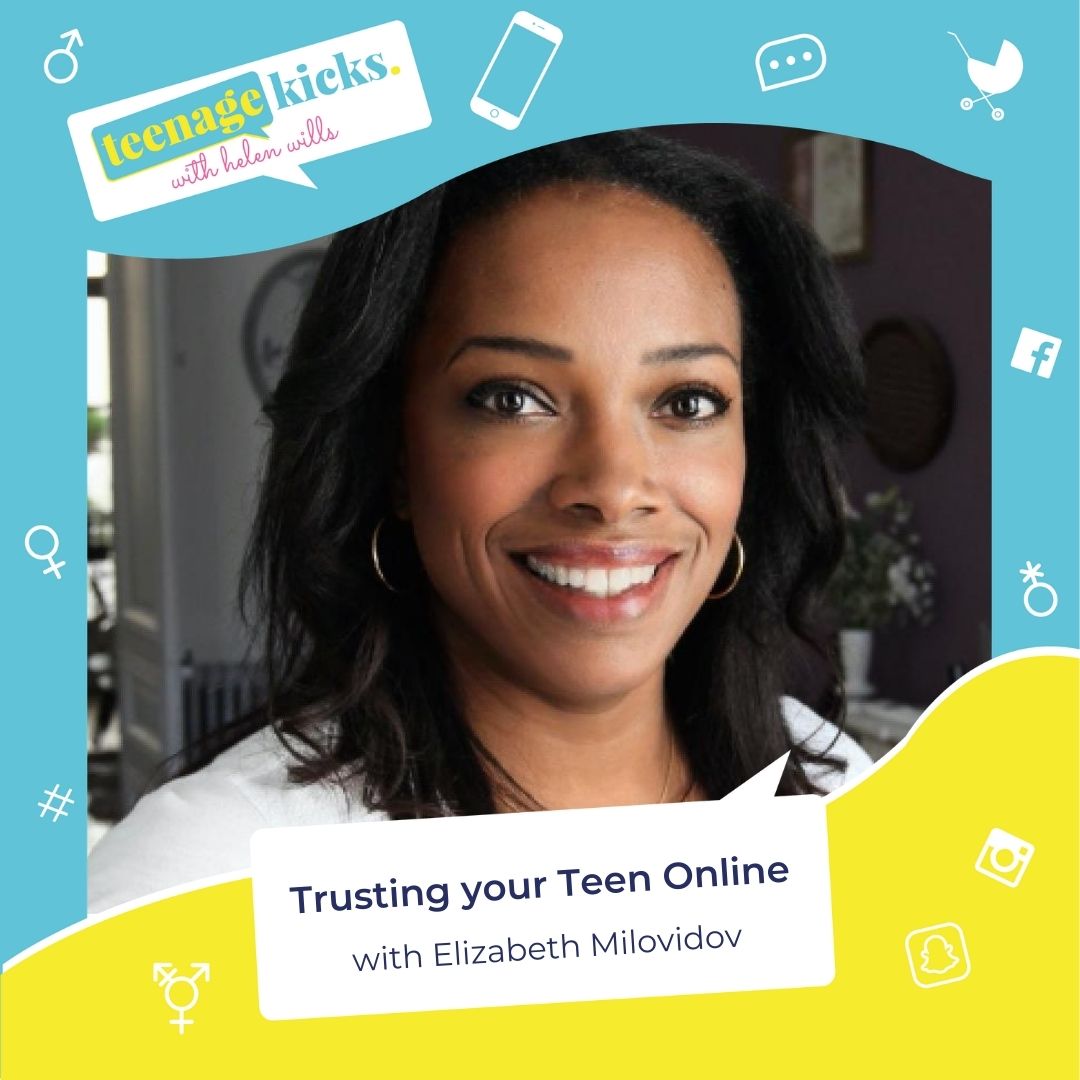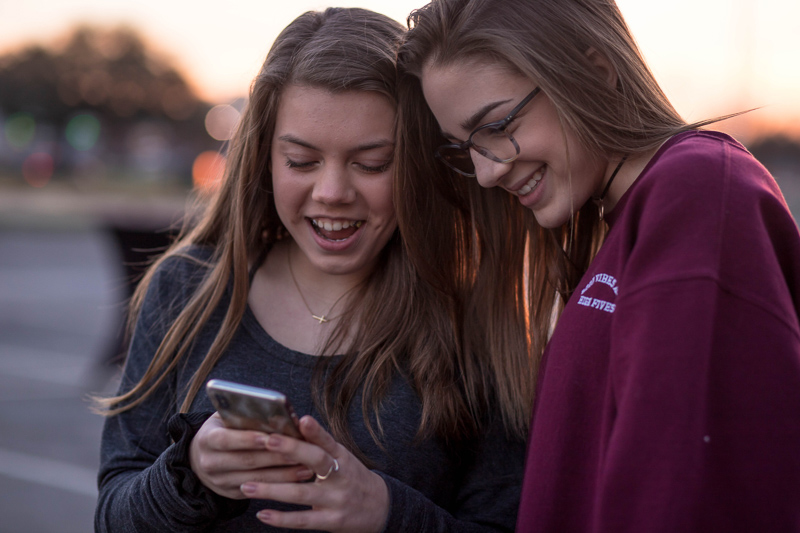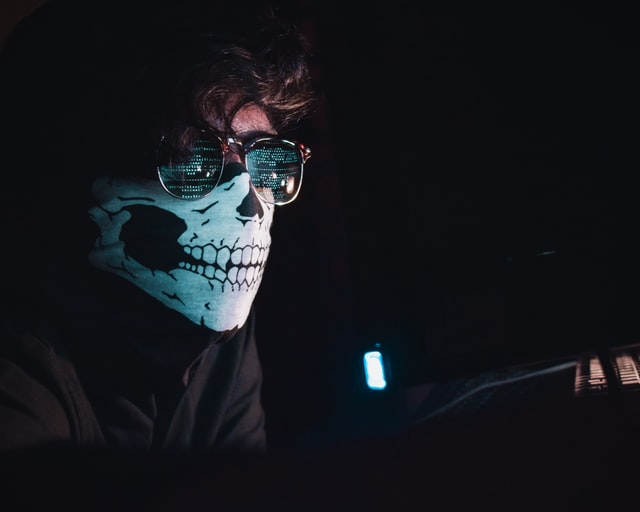Why parental controls will not save your child
As our kids move towards the teenage years it can be difficult for parents to adjust. Starting secondary school is a huge deal for parents as well as kids, and in addition to the physical independence they’re going to need from you, it’s also likely that they’re going to start accessing areas of the online world that you might feel more than a bit twitchy about. Keeping teenagers safe online is a worry for most parents, which is why I invited someone who really knows this topic inside out onto the Teenage Kicks podcast.

Elizabeth Milovidov is the founder of DigitalParentingCoach.com, a site dedicated to empowering parents to understand what their kids are doing online, so we can trust them to start doing it without constant supervision from us.
Elizabeth also provides support to governments, companies, schools, and parenting associations on digital parenting, and children and the internet. She’s a Board Trustee for the Diana Award, and an Advisor to e-Enfance, (the French Child Online Protection Association).
She’s also a mum – her boys are aged 10 and 13 so she GETS IT! And if you listen to the podcast, you’ll see why she thinks – even with all her knowledge of the risks online – that parental controls aren’t the solution.
Why we have to trust our kids online
One of my biggest discoveries as a parent was that I don’t have control over what they see, read, or hear when they’re outside of my home. It’s one of the reasons I’ve always been completely open with them about what’s happening in the world.
When our local newspaper arrived on the doormat with a headline about a stabbing in our local park, I talked to them about it, even though my youngest was only 10 at the time. I did it because I knew that other kids in his year would see that news, and I didn’t want a potentially hyped up version of events to be the first thing they heard about it. It’s the same with the internet. Elizabeth told me during our chat:
“Settings are not going to save you. Settings are not going to save your child.”
I honestly think the only way to protect my kids from hurt, is to be the first one to tell them about difficult things they might experience. Other parents have different restrictions to me, and I allow things other parents wouldn’t. It’s how the world works, and it’s normal. I can never control what another child knows, talks about, or shares online, to the best thing I can do is to set my kids up to know how to handle whatever they come across in life – including online.

Tips for keeping teenagers safe online
I asked my followers on Instagram what worried them most about their child venturing onto the internet and social media for the first time. Here are some of the concerns they had for their children online, and Elizabeth’s responses:
I worry they’ll be bullied online
I think it’s normal for parents to be worried that their child will get bullied, but I think parents should focus on prevention and response strategies instead. So much of digital parenting means just being aware of potential issues and have some response strategies in place to support your child. In this instance, bullying prevention and response strategies are right at hand. This is a fab post with 10 tips on what parents can do from my favorite go-to bullying resource: Cyberbullying Research Center.
My kids will be exposed to unrealistic physical appearances
Yes, there is so much of Photoshopping and filters around. If our children are able to engage their critical thinking skills to really look at the images they are being bombarded with, then much of the anxiety can be dealt with. Parents can start conversations about what is real? What is fake? Parents can ask “Why do you think that influencer believes she has to exaggerate to be seen?” or “Why does that influencer believe he has to photoshop bigger muscles?” Parents can also show other influencers who promote health and reality. One last thought, Instagram is specifically trying to combat these types of issues and created an Instagram parents guide to help parents. I think it’s worth a look.

How will I know if my child is talking to strangers online?
Yep, welcome to the digital age. But if we have done our best to teach our children our expectations and values, then they should be acting responsibly IRL and online. I think parents should remove some of the digital anxiety of not being able ‘to control’ everything online by comparing a an interaction with strangers in a mall and an interaction with strangers online. How has the parent prepared the child to respond in a mall? Can they engage the same strategy online? So much of the anxiety is because the Digital is the unknown. But I say “Take the tech out.” Do some critical thinking, then add the tech back in. Parents have got this!
What if my daughter is harassed by men on social media?
Same as above. Strategies, strategies. How should she respond to men bothering her in a mall, in a park? Ignore, block, report works equally well online. Again, I think that a lot of young women are going to be asked to send nudes and they should know how to respond. As a mother of two boys, I say, parents have a duty to teach their sons to NOT ask for nudes. Zipit is an app created by the UK’s ChildNet to help young people respond to harassment online.
Try these strategies for communicating with your teenage daughter.
Rules vs Strictness – How do I get the balance right?
By having conversations and checking in regularly. Don’t do one conversation 100 minutes long, but 100 little conversations, 1 minute long.
Friendship issues online – How do I make sure she’s behaving appropriately?
Again, this is just straight-up parenting. Take the tech out and what would you do with those heated conversations and fallouts IRL? Talk, model good dispute resolutions within your family, and set boundaries in real conversations about how you talk to each other. Then ask her how she can approach these online upsets in a mature fashion.

Will my child be exposed to adult content online?
In a word YES. Adult content is everywhere, which is why the UK Age verification act is so important. Even something is simple as YouTube has quite a lot of adult content, which is why they created YouTube kids. I know this is not easy, because adult content can literally pop-up on a screen, so children need to know how to respond. And how to come and talk to you in an open manner about what they saw, how they feel, etc. without worrying that you will take their devices away and shut them down forever. Be strong, and prepare them for it.

I’m worried about potential predators online
Yep, aren’t we all? It’s true that predators and offenders go to where the children are and unfortunately, children do fall victim to grooming and exploitation. I wrote this parenting guide for the Council of Europe, along with video tutorials to provide tips and strategies to parents.
Get more advice in the podcast episode
If you’d like to hear more from Elizabeth, Listen to the podcast to find out:
- Why you don’t have to be a parental control guru to keep your kids safe online
- How (and why) to let them have some privacy with their online conversations – I was a snooper and it backfired on me big time!
- What’s the real reason why Snapchat don’t want kids under 13 using their app (it might surprise you)
- How to trust your teenager to know when something isn’t right, and come to you with it
- What are some of the signs that they’re in over their heads
- How to prompt conversations about your teenager’s online interactions without interrogation
- What a gaming addiction looks like, and why your child probably isn’t addicted – although if you need it, here’s 75 ideas to get teenagers off their screens for a while!
- How to understand what is happening online, (Snapchat, TikTok, Instagram: pornography, drugs, sexting) and realising that your teen will be okay anyway
Great resources for parenting teens online:
- The Mix
- The Teenage Kicks Podcast where you’ll find lots more conversations about parenting teens)
- Wireless Risk Assessment – an organisation Elizabeth mentions in the podcast about the physical risk of WiFi.
You can also find Elizabeth on Instagram, YouTube, LinkedIn, and Twitter.
Where to listen:
Listen to the podcast to hear all Elizabeth’s incredible recommendations on how to prepare your teenager to stay safe on the internet.
You can find the episode in your usual podcast app, listen online, or if you prefer, you can click the player below to listen right here.
View on Zencastr
Pin for later

Subscribe to the Teenage Kicks podcast
Thank you so much for listening! Subscribe now to the Teenage Kicks podcast to hear about the new series when it begins. I’ll be talking to some fabulous guests about difficult things that happened to them as teenagers – including losing a parent, being hospitalised with mental health problems, and battling an eating disorder – and how they overcame things to move on with their lives.
I’d love to hear from you if you have any suggestions for future topics on the Teenage Kicks podcast. Contact me here, or you can find me on Instagram and Twitter at @iamhelenwills. I appreciate every message, and love to hear from my listeners.
I’d love it if you’d rate and review the podcast on iTunes too – it would really help other people to find it.
For information on your data privacy please visit Zencastr. Please note that I am not a medical expert, and nothing in this blog or in the podcast should be taken as medical advice.
Join me in the Teenage Kicks Facebook group!
If you’re a parent of teens it can be difficult to know where to go for advice, to vent, or just to talk. So I’ve made the Teenage Kicks Facebook group, for all parents of teenagers to chat in a safe space. It’s a private group and everyone in there will be a parent of teenagers.

